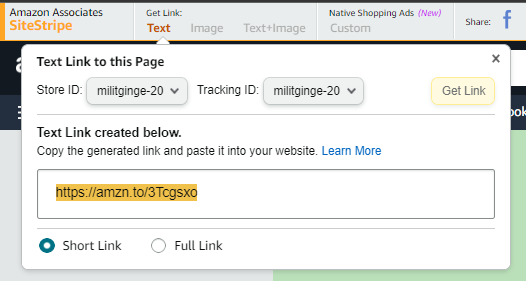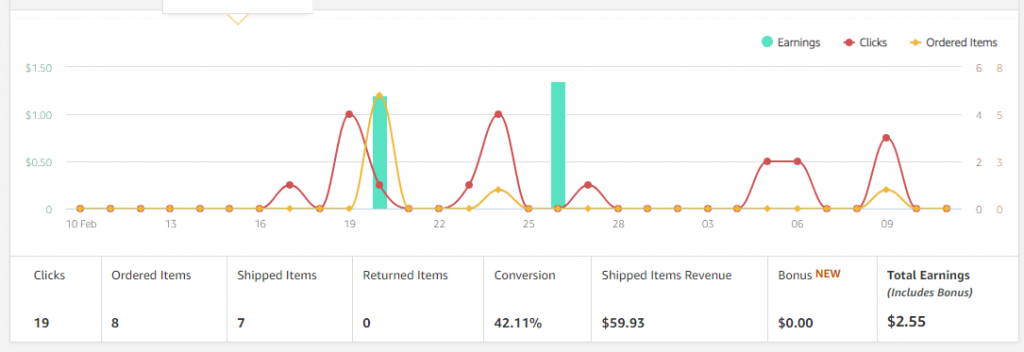What’s the difference between Affiliate Links and Attribution Tags?
Before there were Attribute Tags, many authors used Affiliate Links to try and track their Amazon book sales, but there are a variety of drawbacks in doing so. Affiliate Links weren’t designed for this purpose, and are very limited in terms of where they can even be used. Today, Ginger delves into what Affiliate Links are, what they track, how and when to use them, and most importantly, how they differ from Attribution Tags.
Both of these tracking tools have their purpose, but understanding the nuances of each can help you effectively monitor your book sales, optimize your marketing strategies, and keep you out of trouble.
With so much discussion recently around Attribution Tags, it’s no wonder we’ve recently been getting questions about how they differ from Affiliate Links. If you’re not already familiar with them, Affiliate Links are a tool that authors used to use (and some still do) to track the behavior of the traffic they send to their book pages. The main questions around these tools are:
- What are affiliate links?
- What do they track?
- How do you use them?
And, most frequently:
- What’s the difference between Affiliate Links and Attribution Tags?
These are all great questions, so let me get to each of them in turn.
What are Affiliate Links?
Affiliate Links are another tool Amazon uses to help sellers track their metrics. Notice I said seller, not author.
Signing up as an Amazon affiliate gives you access to a dashboard of tools which allow you to create unique URLs which track the behavior of anybody who clicks on them. If one of these links sends somebody to Amazon and they buy something, you’ll receive around 4% of the purchase price.
I specified seller rather than author because this is a program open to every product on Amazon – it doesn’t have to be books. More importantly, they don’t even need to be your products. Some authors use Affiliate Links to track sales of their own books. However, you could drive traffic to Stephen King’s books, or widescreen TVs, and still get paid for every one of those somebody buys through one of your clicks.
In fact, Affiliate Marketing is its own massive, online business. Thousands of developers and marketers use programs like Amazon Affiliates to market products on Amazon – some generating a healthy income from the revenue they collect from the 4% percentage Amazon pay them.
This includes eBooks – with some exceptions. You can’t use Affiliate Links to promote free books, for example – only paid downloads.
Admittedly, making 4% on the price of a $2.99 eBook might not sound impressive – but remember that you’ll also receive 4% of anything that person buys from Amazon within 24 hours of them arriving on the website via your link. Maybe that’s another ebook – or maybe it’s thousands of dollars worth of high end electronics!
And there’s another benefit to using Affiliate Links – one which was extremely useful before the creation of Attribution Tags. Amazon’s Affiliate Links track the behavior of users who click on those links – meaning they were once the only way you could track whether or not any of the traffic you drove to your book’s product page actually resulted in a purchase.
What do Affiliate Links track?
To use Affiliate Links, you first have to generate them. That’s simple enough once you’ve become an Amazon affiliate. As part of their program, you’ll find something called a SiteStripe across the top of your Amazon homepage. By clicking on the Get Link button, you’ll be able to instantly create an Affiliate Link that will drive anybody who clicks on it to that exact page on Amazon.
It could be a product page for one of your books, the product page for a laptop, or search results, or an author page. It could be literally any page on Amazon – and once somebody clicks on the link you created, you’ll be able to track what they do there for 24 hours.

What you do with that click is up to you – but there are some rules.
You can only use your Affiliate Link on a website – your own, or somebody else’s if you’re writing a guest post or blog. You can’t use Affiliate Links on social media posts, like Facebook or Twitter, and you can’t use them in emails that you send out to your subscribers.
Now, when I say you can’t, I mean you can… it’ll still work, but it’s forbidden.
Amazon has no way to stop you from doing so, and not only will the links direct traffic to the page you specified, but Amazon will also track all the information of the people who go there, just like they would if you’d sent them there via a website click.
However, doing so violates the Affiliate program terms of service, and if Amazon get wind of it, they can forfeit your Affiliate earnings, or kick you off the program forever.
Truth be told? They often don’t get wind of it. I’ve worked with big name authors who’ve shamelessly used Affiliate Links in their emails to thousands of subscribers. However, I’ve also worked with an author who got kicked off the program for doing so, so it’s not something I’d risk doing myself. So I definitely wouldn’t recommend taking the chance. Especially since Attribution tags can just be used instead (for tracking, at least).
However, assuming you choose to use Affiliate Links, here’s how they work. If you go to your Affiliate dashboard, you can measure the number of people who clicked on your links, what products they ordered, and how much you earned from them. The dashboard looks a little like this:

As you can see, in this 30-day period I got 19 clicks on my Affiliate Links – presumably from my website, since I haven’t used Affiliate Links in years! Those clicks resulted in 8 items being sold – totaling $59.93 – and from those, I earned $2.55 in Affiliate payments.
Even better, I can track what products actually got bought. Here, you can see that the 7 shipped items in the report above were all books somebody had bought within 24 hours of my link sending them to Amazon.

Sometimes it’s a bit random what items end up getting bought thanks to your links – but you still end up getting paid for them!
How do you use Affiliate Links?
The answer to how authors use Affiliate Links isn’t found in generating them, but in using them – the strategies and tactics that make doing so worth your while.
Before the creation of Attribution Tags, the obvious benefit was in being able to track the performance of your advertising and marketing. If you launched a new book, you could use an Affiliate Link to send traffic to your book’s product page, then see how many of those clicks actually resulted in a purchase.
Attribution Tags have eliminated that need, however – and they’re superior in tracking user behavior because they measure it for 14 days after they click on your link, rather than just 24 hours – and Attribution Tags track KENP page reads, too, for books you have in Kindle Unlimited.
But a lot of authors are still curious about using Affiliate Links because they provide one thing Attribution Tags don’t – a nice 4% incentive on anything the traffic they drive to Amazon spends money on.
Theoretically, you can even combine the two – making an Affiliate Link from the URL you generated as an Attribution Tag. That would track all of your user behavior on your Attribution dashboard, and on your Affiliate dashboard. The best of both worlds, right?
Well, sadly not – and let me explain why.
Firstly, there are only a few places you can safely use Affiliate Links. Remember what I wrote about not using them on social media? Or in your emails? That pretty much means a static link on your website is the only place you can use Affiliate Links to market your books.
To advertise using that link, therefore, you’d have to drive traffic from Facebook ads, or your email blasts, directly to your website first – and then hope that they’ll click once again to get bounced from your website to Amazon.
I emphasis “hope” because it’s a generally accepted rule that you lose about 50% of your traffic each time you make them click an additional link. Therefore if you use Facebook ads to send 100 people to your website, only 50% of them will subsequently click your link to go through to Amazon.
That might be something worth considering if your books are wide, as you’re driving people to your website anyway so they can choose between Amazon, Apple, and Nook versions of your books. However, I’d recommend always driving traffic directly to Amazon whenever possible, so this isn’t a great strategy in any event.
Which raises the question of what use Affiliate Links actually are to an author – and that’s answered with this final question.
What’s the difference between Affiliate Links and Attribution Tags?
The major difference between Attribution Tags and Affiliate Links is that the former were designed specifically for authors, while the latter is a tool designed more for people who treat affiliate marketing like a business.
We get a lot of questions about Affiliate Links because they used to be so useful to authors – perhaps the only way to have any idea how effective your external advertising was. However, even they we were kind of jerry-rigging Affiliate Links to do something they weren’t really designed to do, and the limitations of where you could use them hindered their effectiveness.
Attribution Tags are, quite simply, a better tool – and one you should definitely be using if you’re serious about selling books on Facebook or Twitter. They’re so effective and simple to use that I strongly discourage trying to combine the two. Affiliate Marketing is something that requires its own dedicated strategy to pull off effectively, and the limitations about where you can use Affiliate Links makes them really ineffective for selling books.
I know the idea of Amazon paying you seems attractive – but I guarantee that you’ll make more money by focusing on selling your books than you ever will by trying to shoe-horn an Affiliate Link into your marketing strategy.
But hey – that’s just my opinion. If you’ve used Affiliate Links to sell your books effectively, let us know in the comments down below.











